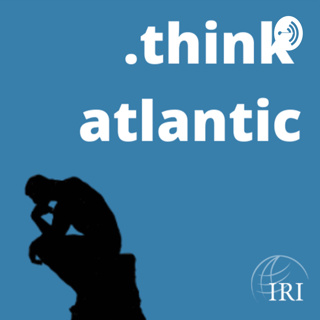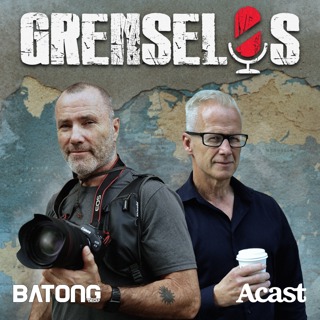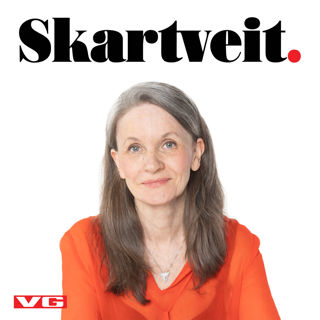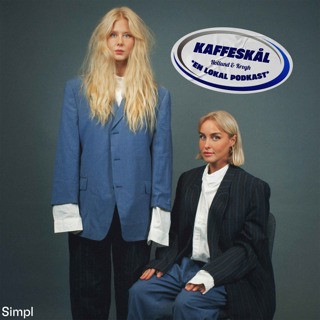
Czechs & Balances with Jiří Pehe
In this episode of .think atlantic, IRI’s Thibault Muzergues is joined by Jiří Pehe to discuss the Czech general elections which will be held on October 8th and 9th. Jiří Pehe is Director of New York University in Prague, and head of NYU’s Prague Institute for Democracy. He arrived in the US as a political refugee in the early 1980s, and graduated from Columbia University in 1985. He worked at Freedom House and then became Director of Central European Research at Radio Free Europe/Radio Liberty. Returning to Prague, he joined Václav Havel’s Cabinet as Director of the Political Department and later served as his personal advisor. Jiří is also the author of hundreds of analytical studies as well as several books on developments in Central and Eastern Europe, focusing especially on transitions to democracy. Are these elections a referendum on Prime Minister Andrej Babiš? How to explain the fall of Pirates/Mayors coalition? What kind of coalitions are expected after the elections? What is the position of Czech Republic regarding the EU at the moment? What about its foreign policy made of different voices? Thibault and his guest discuss all these questions – and much more. Find Jiří on Twitter: @JiriPehe Find Thibault on Twitter: @tmuzergues Visit IRI’s website at www.iri.org
7 Okt 202133min

German Elections: Money Time with Jana Puglierin
In this episode of .think Atlantic, IRI’s Thibault Muzergues is joined by special guest Jana Puglierin to discuss the German elections, which will take place Sunday, September 26. Jana is Senior Policy Fellow and the head of the Berlin office of European Council on Foreign Relations. She directs the Re:shape Global Europe project, developing strategies for Europeans to engage with changes in the international order. Previously, she headed the Alfred von Oppenheim Center for European Policy Studies at the German Council on Foreign Relations. Her expertise on German and European policy directs the episode’s discussion. Is there a more substantial crisis around the corner for Germany’s Christian Democrats? Is it the end of the Volkspartei culture, and what does that mean for the German political system’s stability? What kind of power vacuum will Angela Merkel’s absence leave, and what will her lasting legacy be? Thibault and his guest discuss all these questions and contemplate what they mean for the larger transatlantic space – and much more. Find Jana on Twitter: @jana_puglierin Find ECFR Berlin on Twitter: @ECFRBerlin Find Thibault on Twitter: @tmuzergues Visit IRI’s website at www.iri.org
24 Sep 202126min

9/11, 20 Years On with Marc Hecker
In this episode of .think atlantic, IRI’s Thibault Muzergues is joined by Marc Hecker to discuss the 20thanniversary of 9/11 and the War on Terrorism. Marc Hecker is the Director of Research and Development at IFRI – the French Institute of International Relations – and Editor-in-Chief of the French academic journal Politique étrangère. He taught at Sciences Po for several years on terrorism and asymmetric wars and is the author of the recently published book La Guerre de 20 ans: Djihadisme et contre-terrorisme au XXIe siècle. His expertise on terrorism, the “Twenry Years War”, and international affairs directs the episode’s discussion. Has there been any success in counterterrorism, now that the Taliban has control of Afghanistan? Will there ever be an end to jihadists’ power? Did Western allies miss counterterrorism opportunities during the Arab Spring? Have drones redefined modern warfare? Are there similar terrorism threats outside of the Middle East theatre? Is the transatlantic relationship a collateral victim to the war on terror? Thibault and his guest discuss all these questions – and much more. Find Marc on Twitter: @M_Hecker Find Thibault on Twitter: @tmuzergues Visit IRI’s website at www.iri.org Further reading: Marc’s book, La Guerre de 20 ans: Djihadisme et contre-terrorisme au XXIe siècle: https://www.amazon.com/Guerre-vingt-ans-Djihadisme-contre-terrorisme/dp/2221250974
9 Sep 202128min

The Euro-Med: Sea, Sun, and Liberalism
In this episode of .think atlantic, IRI’s Thibault Muzergues is joined by Adrian Vazquez Lazara, an MEP from the Spanish party Ciudadanos, to discuss the state of play in the Euro-Med region. Adrian Vazquez Lazara sits on the Renew Europe parliamentary group, where he is also the Chairman of Legal Affairs. Prior to his election to European Parliament in 2020, Adrian was an international officer for the Ciudadanos party and had an extensive background working in both public and private affairs. Are there structural problems in Southern Europe? What are solutions to the economic difficulties the Euro-Med is facing? Is a recovery fund an adequate solution or are more changes required? How can the Euro-Med deal with the migration crisis? Is there a future of liberalism in Southern Europe? Thibault and his guest discuss these questions – and much more. Find Adrian on Twitter: @AdrianVL1982 Find Thibault on Twitter: @tmuzegues Visit IRI’s website at www.iri.org
27 Jul 202126min

Moldovan Elections with Nicu Popescu
In this episode of .think atlantic, IRI’s Thibault Muzergues is joined by Nicu Popescu, a Moldovan diplomat, to discuss the elections and state of politics in Moldova. Nicu Popescu is currently the director of Wider Europe at the European Council on Foreign Relations, focusing on EU relations with Russia and the Eastern Partnership countries. He has experience in international affairs, holding roles at the EU Institute for Security Studies, the European Council on Foreign Relations, and as a foreign policy advisor to the prime minister of Moldova. His experience, as well as his soon-to-be-published book, Russia Rising, directs the episode’s discussion. What is the current state of Moldovan politics and how will the upcoming election change it? How will Moldova’s next government address issues of corruption and emigration? What is Moldova’s role in international politics? How does Moldova navigate its relationship between the East and the West? What is the future of Moldovan-Romanian relations? Thibault and his guest discuss these questions – and much more. Find Nicu on Twitter: @nicupopescu Find Thibault on Twitter: @tmuzegues Visit IRI’s website at www.iri.org Further reading: https://www.bloomsbury.com/au/russia-rising-9780755636655/
9 Jul 202133min

Entrepreneurial Parties with Vít Hloušek
In this episode of .think atlantic, IRI’s Thibault Muzergues is joined by Vít Hloušek, a contemporary European history and politics professor in the Czech Republic to discuss the rise of entrepreneurial parties and their influence on European politics. Vít Hloušek is head of the Department of the International Institute of Political Science at Masaryk University in Brno, Czech Republic. He specializes in comparative political science research and has authored numerous publications, including The Rise of Entrepreneurial Parties in European Politics. His expertise on entrepreneurial politics directs the episode’s discussion on the new phenomenon in politics and the intersection of business and political ideologies. What are entrepreneurial parties and where are they emerging from? What qualities do political entrepreneurs have that differ them from traditional party leaders? Are there any benefits to evolving politics to be more business-like? Are entrepreneurial parties only a product of right-wing politics? Does the rise of entrepreneurial parties indicate something more sinister about the rise of personal charisma as a definer of electoral politics? Thibault and his guest discuss these questions – and much more. Find Thibault on Twitter: @tmuzegues Visit IRI’s website at www.iri.org Further reading: https://www.palgrave.com/gp/book/9783030419158
25 Jun 202135min

Forming a Unified Response on China, with Giulia Pompili and Mantas Adomenas
In this episode of .think atlantic, IRI’s Thibault Muzergues is joined by Mantas Adomenas and Giulia Pompili to discuss Europe’s relationship with the People’s Republic of China. As China’s presence grows in Europe through the Belt and Road Initiative and the 16+1 agreement, European leaders are beginning to consider future cooperation between Europe and China. What are China’s true intentions in Europe? What strategies can and should European countries use in finding an alternative to Chinese investments? How can Europeans work with Asian markets while avoiding dependency on China? Can the EU remain a neutral spectator if there were to be tensions between the US and China? Thibault and his guests discuss all these questions - and much more. Mantas is Lithuania’s Deputy Minister of Foreign Affairs and former Member of Seimas from 2008 to 2020 and Giulia is the East Asia correspondent for the Italian daily newspaper Il Foglio and author of Sotto lo stesso cielo. Mantas’ experience in international politics accompanied by Giulia’s expertise result in an intriguing conversation led by Thibault regarding China’s influence in Europe and broader geopolitics. Find Mantas Adomenas on Twitter @adomenas Find Giulia Pompili on Twitter @giuliapompili Find Thibault Muzergues on Twitter @tmuzergues Further reading: Sotto lo stesso cielo by Giulia Pompili - Available at: https://www.librimondadori.it/libri/sotto-lo-stesso-cielo-giulia-pompili/ Visit IRI’s website at www.iri.org
11 Jun 202143min

1969, with Brice Couturier
In this episode of .think atlantic, IRI’s Thibault Muzergues is joined by Brice Couturier, a leading French intellectual and author to discuss his book “1969” and the cultural and intellectual impact that the late sixties had on Western culture. Brice Couturier is a French journalist working at France Culture, producing the daily show “Le Tour du Monde des Idées,” one of the inspirations for .think atlantic. Additionally, Brice is the author of several books, including a biography of Emmanuel Macron and “1969, année fatidique,” which directs the episode’s discussion on the cultural and political impact that the late-1960s had on Western society through the end of the 20th century up to today. Brice shares his reasoning behind focusing research on 1969, why it is such a pivotal year for Western culture and the year’s impact on culture and intellectualism. What major political and cultural events occurred in 1969 that influenced the future of Western society? What role did cultural emancipation and social liberalism have with the late sixties? How did the late sixties create a dominating cultural domain for decades to come? How has the “spirit of the late sixties” evolved into contemporary “woke” culture and generational conflict? What parallels can be made between the 1960s and 2010s? Thibault and his guest discuss these questions – and much more. Find Brice on Twitter: @briceculturier Find Thibault on Twitter: @tmuzergues Visit IRI’s website at www.iri.org Further reading: https://www.amazon.com/1969-ann%C3%A9e-fatidique/dp/B07D57DM89
28 Mai 202139min





















